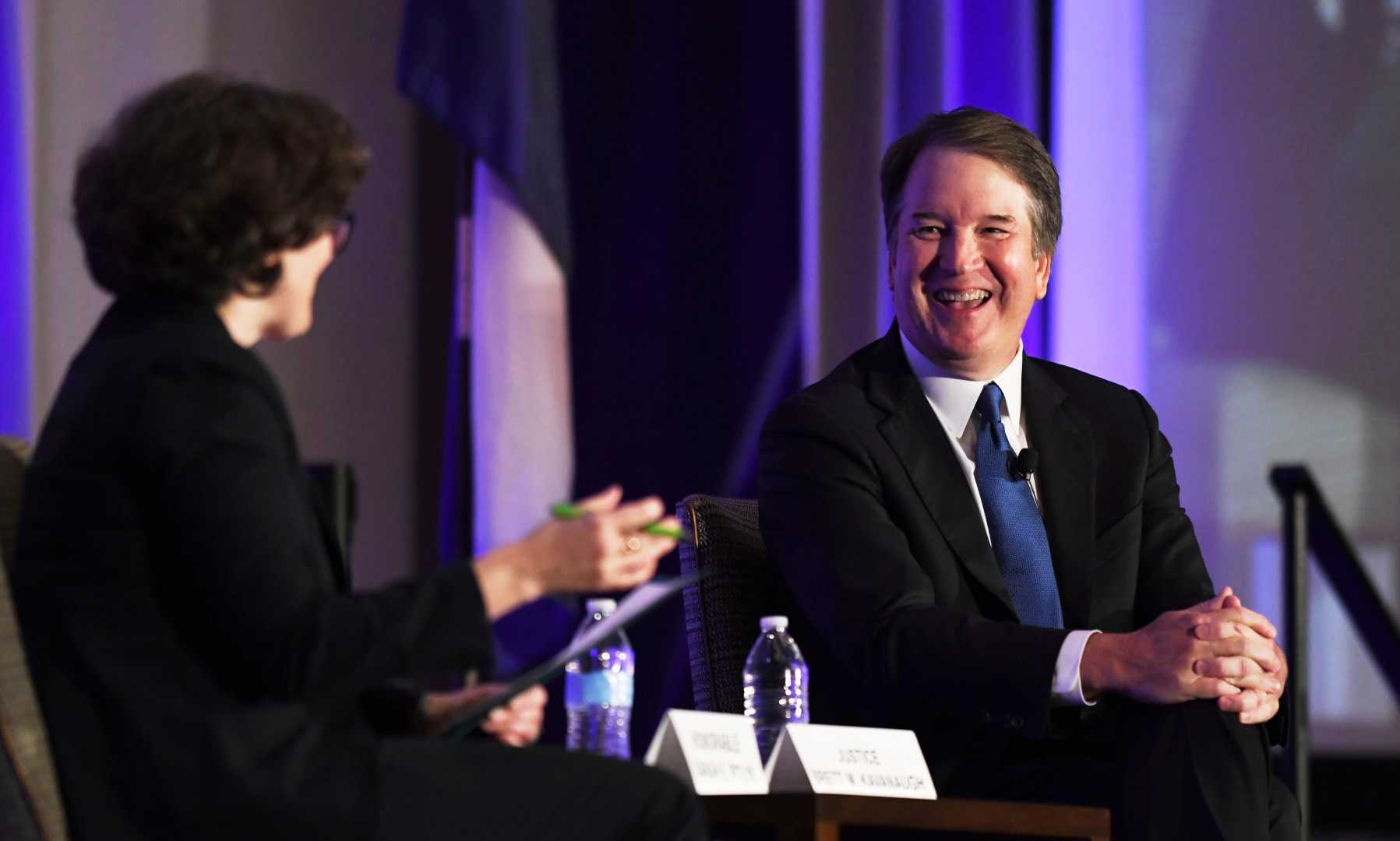News
Kavanaugh Defends Supreme Court’s Handling of Emergency Cases Amid Criticism

Kansas City, Missouri — Justice Brett Kavanaugh defended the Supreme Court‘s approach to emergency cases on Thursday, addressing rising concerns about how the court resolves disputes quickly, especially during President Donald Trump’s administration.
Kavanaugh spoke to a gathering of judges and lawyers in Kansas City, acknowledging the growing criticism that the court often issues emergency orders with minimal explanation. He mentioned that many of these cases relate to policies implemented by Trump, such as immigration measures and the dismissal of leaders at independent federal agencies.
“We have written a lot more than we’ve written in the past on the interim orders docket,” Kavanaugh said, referencing a significant opinion from last month that limited nationwide court orders that obstruct presidential policies. He emphasized that the court has published more opinions on these emergency cases than in previous years.
However, Kavanaugh cautioned that writing extensively on these interim orders can be risky. He indicated that such writings may prematurely reveal a majority’s views before the final decisions are made. “There can be a risk in writing the opinion of lock-in effect,” he added, warning against making snap judgments in written opinions.
Kavanaugh’s remarks came soon after Justice Elena Kagan voiced a contrasting opinion, advocating for clearer communication from the high court to help lower judges and the public understand its decisions better. “As we have done more and more on this emergency docket, there becomes a real responsibility… to explain things better,” Kagan stated.
The Supreme Court’s emergency docket, sometimes termed the “shadow docket,” operates separately from its primary docket, where justices hear full arguments and have comprehensive briefing. Emergency cases often involve limited briefing and lack oral arguments.
Earlier this month, the court allowed Trump to proceed with a Department of Education decision, which was issued as a brief one-paragraph order. This lack of clarity has forced the justices to revisit similar issues repeatedly. For example, the court ruled earlier this year that Trump need not rehire senior labor officials at independent agencies, without addressing a 1935 precedent regarding Congress’s power to protect those agencies from presidential influence.
Subsequently, the justices were presented with a similar case involving board members of the Consumer Product Safety Commission, which led lower courts to rule in favor of the fired members because the Supreme Court’s earlier decision did not overturn the 1935 precedent.
Criticism of the Supreme Court’s emergency docket resurfaces regularly, especially amid the deluge of cases during the Trump administration, which has included controversial decisions on military service bans for transgender individuals and immigration policies.
Kavanaugh noted that the increase in emergency cases reflects how current presidents, including Trump, pursue swift actions that quickly encounter legal challenges. “Presidents run for office on getting things done,” he explained.
To address some of the critiques about the emergency docket, Kavanaugh mentioned that the court has held oral arguments in specific cases, like Trump’s executive order on birthright citizenship. In a recent ruling, the court limited lower court abilities to halt Trump’s policies, with differing opinions and dissent from the court’s liberal justices.
As ongoing legal challenges remain regarding Trump’s birthright citizenship policy, Kavanaugh emphasized the vital role of an independent federal judiciary, without referencing Trump’s critical statements about lower court judges. He described the independent judiciary as the “crown jewel of our constitutional democracy,” underlining the collaboration between the bench and bar to uphold the rule of law in the United States.












